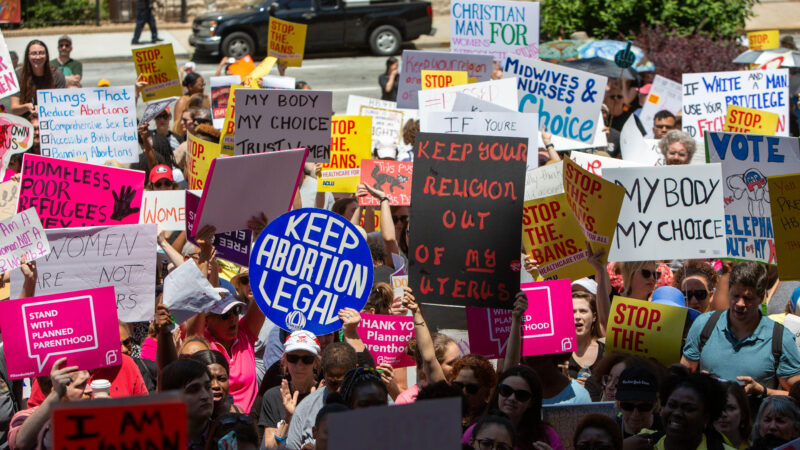Reproductive Freedom
The ACLU of Georgia is firmly on the frontlines protecting the liberty and freedom of people to decide whether and when to start or expand a family without government interference.

What you need to know
50th out of 50
Georgia's ranking in maternal mortality rates compared to the rest of the U.S.
48/50
Georgia's ranking in U.S. healthcare coverage for women
6 times
Maternal mortality rate for black women in Georgia compared to the national average
SISTERSONG V. GEORGIA
Georgia physicians, reproductive health care providers, and advocates filed a lawsuit in the Superior Court of Fulton County on June 26, 2022, bringing a state constitutional challenge against H.B. 481, a law banning abortion at approximately six weeks of pregnancy — just two weeks after a person’s first missed period and before many people even know they are pregnant. This lawsuit comes one week after a federal appeals court allowed Georgia’s six-week ban to take effect for the first time since it was passed in 2019, causing an immediate, devastating crisis as clinics were forced to turn away patients in waiting rooms across the state and to cancel many upcoming appointments.
THE PAST
Roe v. Wade was the landmark U.S. Supreme Court decision that famously invalidated the Texas law in 1973 on the ground that the constitutional right to privacy encompasses a woman’s decision whether or not to continue her pregnancy.
The Court found that the state could not “override the rights of the pregnant woman” by “adopting one theory of life.” Characterizing this right as ‘fundamental’ to a woman’s ‘life and future,’ the Court held that the state could not interfere with the abortion decision unless it had a compelling reason.
In a companion case to Roe, Doe v. Bolton, which the ACLU argued before the Justices, the U.S. Supreme Court overturned a Georgia law prohibiting abortions except when necessary to preserve a woman's life or health or in cases of fetal abnormality or rape. The Court held the Georgia law unconstitutional, because it imposed too many restrictions and interfered with a woman's right to decide, in consultation with her physician, to terminate her pregnancy.
Georgia's Maternal Mortality Crisis
Georgia is one of the most dangerous states in America for a pregnant woman — even more so if that woman is black. In 2016, The Yale School of Public Health found that the pregnancy-related maternal mortality ratio in Georgia was 40.8 per 100,000 live births.
The maternal death rate for white women in Georgia is more than twice that for white women nationally. The maternal death rate for black women in Georgia is twice that for white women in Georgia and 6 times the rate for white women, nationally. Half of Georgia’s 159 counties have no OB-GYNs. Rather than second guessing women's healthcare decisions, politicians should address Georgia's maternal health crisis.
Stop. The. Bans.
The Latest

Press Release: Georgia Voters Make Historic Progress for Reproductive Rights in General Assembly

Press Release: Georgia Supreme Court Reinstates Six-Week Abortion Ban

Press Release: ACLU Launches Voter Education Campaign Ahead of Georgia State House Race Focused on Reproductive Rights

Press Release: ACLU and SisterSong Statement on Petition to Georgia Supreme Court to Reinstate Abortion Ban
Cases, Campaigns & Legislation
Stay Informed
Sign up to be the first to hear about how to take action.
By completing this form, I agree to receive occasional emails per the terms of the ACLU’s privacy statement.
By completing this form, I agree to receive occasional emails per the terms of the ACLU’s privacy statement.
